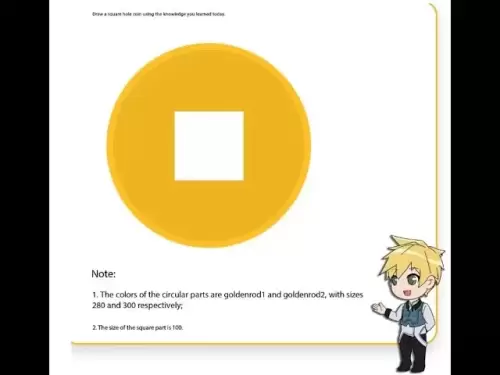-
 Bitcoin
Bitcoin $118400
0.47% -
 Ethereum
Ethereum $3836
2.20% -
 XRP
XRP $3.157
2.98% -
 Tether USDt
Tether USDt $0.9999
-0.03% -
 BNB
BNB $801.5
1.31% -
 Solana
Solana $180.9
2.07% -
 USDC
USDC $0.9999
-0.02% -
 Dogecoin
Dogecoin $0.2225
2.50% -
 TRON
TRON $0.3285
-1.02% -
 Cardano
Cardano $0.7789
2.60% -
 Hyperliquid
Hyperliquid $43.60
2.39% -
 Sui
Sui $3.892
4.41% -
 Stellar
Stellar $0.4229
3.34% -
 Chainlink
Chainlink $18.01
3.98% -
 Hedera
Hedera $0.2745
6.77% -
 Bitcoin Cash
Bitcoin Cash $582.3
3.38% -
 Avalanche
Avalanche $23.77
1.04% -
 Ethena USDe
Ethena USDe $1.001
0.01% -
 Toncoin
Toncoin $3.493
3.59% -
 Litecoin
Litecoin $110.0
2.48% -
 UNUS SED LEO
UNUS SED LEO $8.936
-0.37% -
 Shiba Inu
Shiba Inu $0.00001304
2.49% -
 Uniswap
Uniswap $9.999
1.09% -
 Polkadot
Polkadot $3.897
3.26% -
 Monero
Monero $308.6
-0.83% -
 Dai
Dai $0.9999
-0.01% -
 Bitget Token
Bitget Token $4.504
-0.04% -
 Pepe
Pepe $0.00001154
2.95% -
 Cronos
Cronos $0.1471
3.06% -
 Ethena
Ethena $0.6691
19.53%
MetaMask shows Pending status for too long: Can it be forced to cancel?
In MetaMask, you can't directly cancel a pending transaction, but you can speed it up or replace it with a higher gas price to manage it effectively.
May 15, 2025 at 01:36 pm
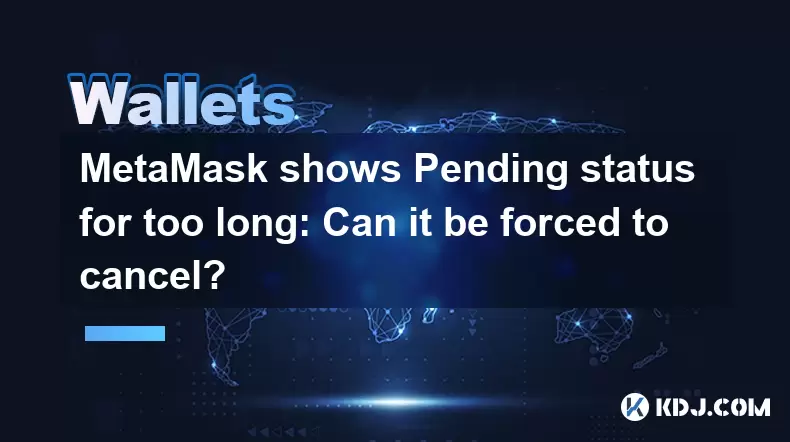
When using MetaMask, encountering a transaction that remains in a Pending status for an extended period can be frustrating. This situation often leads users to wonder if there's a way to force the transaction to cancel. In this article, we'll explore the reasons behind prolonged pending statuses, the steps you can take to manage these transactions, and whether it's possible to force a cancellation.
Understanding the Pending Status in MetaMask
The Pending status in MetaMask indicates that a transaction has been broadcast to the Ethereum network but has not yet been confirmed by miners. Several factors can cause a transaction to remain pending for a long time, including:
- Low Gas Price: If the gas price set for the transaction is too low, miners may prioritize other transactions with higher gas prices.
- Network Congestion: High demand on the Ethereum network can lead to delays in transaction processing.
- Nonce Issues: If transactions are sent out of order, it can cause subsequent transactions to be stuck.
Can You Force a Transaction to Cancel?
Unfortunately, it is not possible to directly force a transaction to cancel within MetaMask. Once a transaction is broadcast to the network, it is out of the user's control. However, there are strategies you can use to manage a stuck transaction.
Speeding Up a Pending Transaction
If you want to expedite a transaction that's stuck in a pending state, you can attempt to speed it up by increasing the gas price. Here's how you can do it:
- Open MetaMask: Navigate to the transaction that is stuck in the Pending status.
- Select Speed Up: Click on the transaction and select the Speed Up option.
- Adjust Gas Price: Increase the gas price to a higher value. You can use tools like EthGasStation or GasNow to find an appropriate gas price.
- Confirm: Confirm the new transaction with the higher gas price. This new transaction will replace the original one if it has the same nonce.
Cancelling a Pending Transaction
While you cannot directly cancel a transaction, you can attempt to replace it with a new transaction that has a higher gas price and a value of 0 ETH. This method is often referred to as a "cancel transaction." Here's how to do it:
- Open MetaMask: Go to the transaction that is stuck in the Pending status.
- Select Cancel: Click on the transaction and select the Cancel option.
- Adjust Gas Price: Increase the gas price to ensure the cancel transaction is processed quickly.
- Confirm: Confirm the cancel transaction. If successful, the original transaction will be replaced and effectively canceled.
Using Nonce Management to Handle Pending Transactions
Another approach to managing pending transactions involves nonce management. The nonce is a sequential number assigned to each transaction from an address. If a transaction is stuck, you can send a new transaction with the same nonce but a higher gas price to replace the stuck one. Here's how to do it:
- Check the Nonce: Identify the nonce of the stuck transaction.
- Create a New Transaction: Use a tool like MyCrypto or MyEtherWallet to create a new transaction with the same nonce and a higher gas price.
- Send the New Transaction: Broadcast the new transaction to the network. If successful, it will replace the stuck transaction.
Using Third-Party Tools for Transaction Management
Several third-party tools can help manage pending transactions more effectively. Tools like Etherscan and MEW (MyEtherWallet) offer features to speed up or cancel transactions. Here's how to use Etherscan:
- Find the Transaction: Go to Etherscan and search for the transaction hash of the stuck transaction.
- Speed Up or Cancel: Use the Speed Up or Cancel options provided by Etherscan. These options will guide you through the process of creating a new transaction to replace the stuck one.
Best Practices to Avoid Stuck Transactions
To minimize the risk of transactions getting stuck, follow these best practices:
- Set Appropriate Gas Prices: Use gas price estimators to set a competitive gas price.
- Monitor Network Conditions: Be aware of network congestion and adjust your gas price accordingly.
- Use Nonce Management: Keep track of your transaction nonces to avoid sending transactions out of order.
Frequently Asked Questions
Q: Can I cancel a transaction if it has already been confirmed by the network?
A: No, once a transaction is confirmed by the Ethereum network, it cannot be canceled or reversed. Only transactions in a pending state can be managed.
Q: Will speeding up a transaction cost me more in gas fees?
A: Yes, speeding up a transaction by increasing the gas price will result in higher gas fees. However, it can help ensure your transaction is processed more quickly.
Q: Is it safe to use third-party tools to manage my transactions?
A: Generally, reputable tools like Etherscan and MyEtherWallet are safe to use. However, always ensure you are using the official websites and never share your private keys or seed phrases with any service.
Q: What should I do if my transaction remains pending for days?
A: If a transaction remains pending for an extended period, try speeding it up or canceling it using the methods described above. If these methods fail, you may need to wait for the transaction to either be confirmed or dropped by the network.
Disclaimer:info@kdj.com
The information provided is not trading advice. kdj.com does not assume any responsibility for any investments made based on the information provided in this article. Cryptocurrencies are highly volatile and it is highly recommended that you invest with caution after thorough research!
If you believe that the content used on this website infringes your copyright, please contact us immediately (info@kdj.com) and we will delete it promptly.
- Ozak AI: Can This Underdog Crypto Achieve a Bull Run to $1?
- 2025-07-31 22:30:12
- Coinbase Breach: Navigating Insider Risk and Bolstering Security
- 2025-07-31 23:11:55
- Bitcoin Rebounds, WeWake Presale Gains Traction: What's the Buzz?
- 2025-07-31 22:30:12
- Bitcoin, Altcoins, and Volume Watchlists: Decoding the Crypto Landscape
- 2025-07-31 23:11:55
- Tron, Fartcoin, and BlockchainFX: What's Trending (and What's Not) in the Crypto World
- 2025-07-31 21:32:19
- Bitcoin, Corporate Investments, and Sustainability: A New Era or Fleeting Fad?
- 2025-07-31 20:50:14
Related knowledge
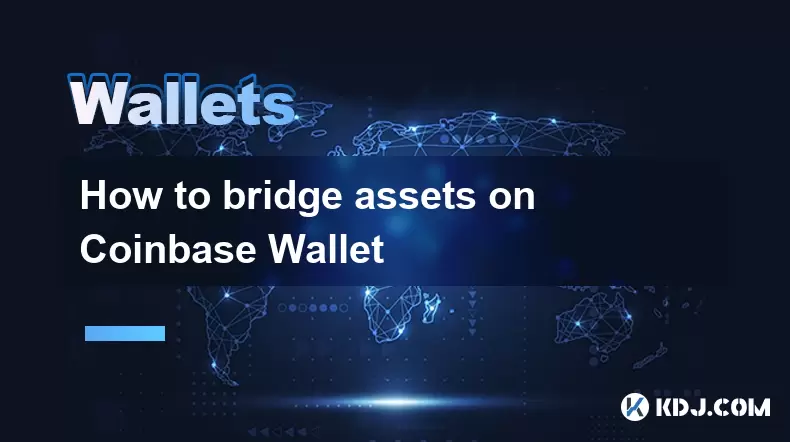
How to bridge assets on Coinbase Wallet
Jul 27,2025 at 01:14am
What Is Asset Bridging in the Context of Coinbase Wallet?Bridging assets refers to the process of transferring tokens from one blockchain network to a...
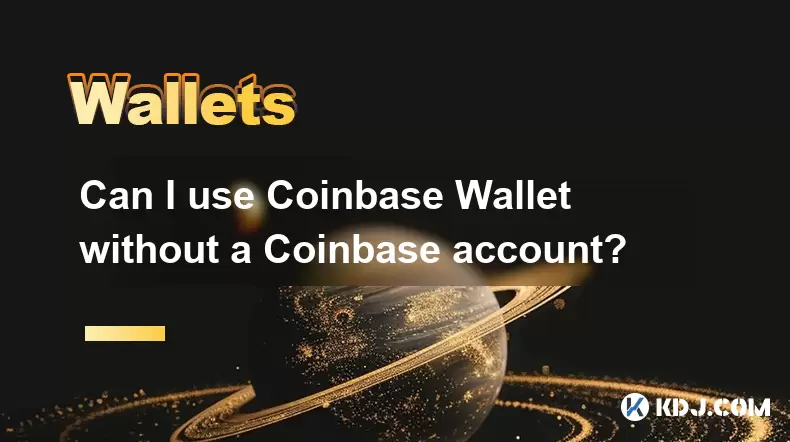
Can I use Coinbase Wallet without a Coinbase account?
Jul 18,2025 at 04:35am
What is Coinbase Wallet?Coinbase Wallet is a self-custodial wallet that allows users to store, send, and receive various cryptocurrencies directly on ...
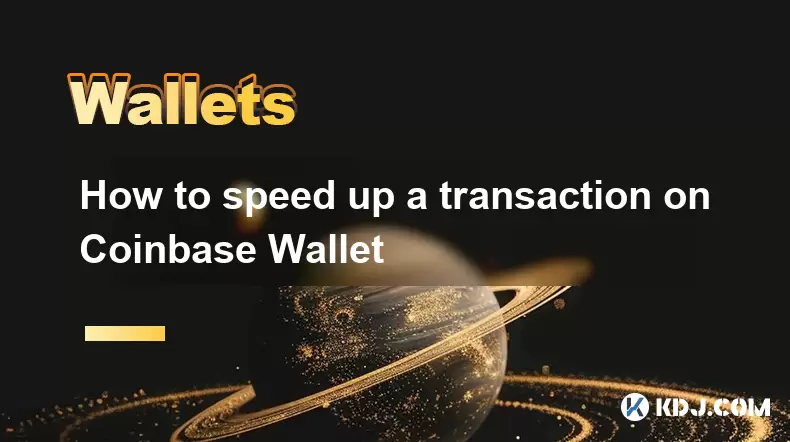
How to speed up a transaction on Coinbase Wallet
Jul 27,2025 at 07:14am
Understanding Transaction Speed on Coinbase WalletWhen using Coinbase Wallet, users may occasionally encounter delays in transaction confirmations. Th...
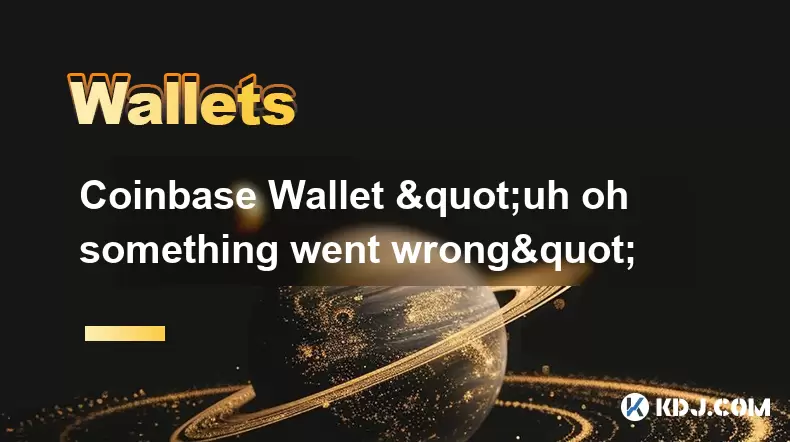
Coinbase Wallet "uh oh something went wrong"
Jul 20,2025 at 10:00am
Understanding the Coinbase Wallet Error: 'Uh Oh, Something Went Wrong'If you're a Coinbase Wallet user, encountering the error message 'Uh Oh, Somethi...
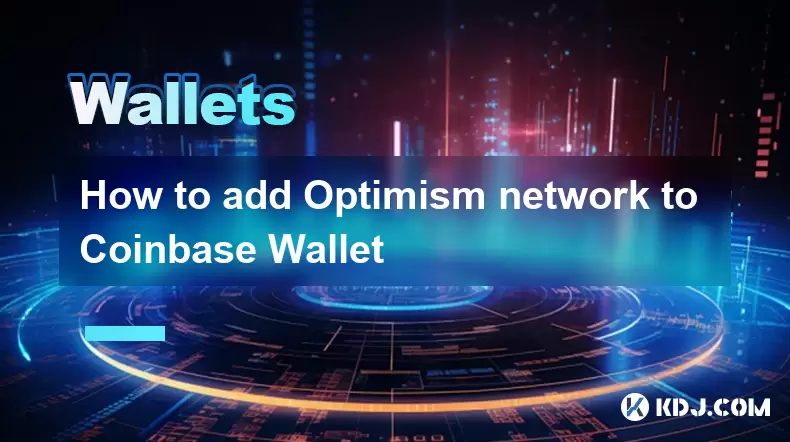
How to add Optimism network to Coinbase Wallet
Jul 20,2025 at 05:21am
What is the Optimism Network?The Optimism network is a Layer 2 scaling solution built on top of the Ethereum blockchain. It aims to enhance transactio...
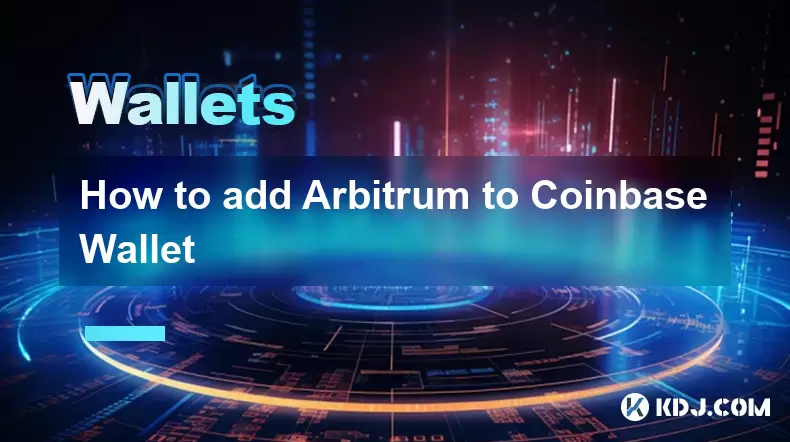
How to add Arbitrum to Coinbase Wallet
Jul 18,2025 at 03:00pm
Understanding Arbitrum and Its Integration with Coinbase WalletArbitrum is a layer-2 scaling solution developed by Offchain Labs to enhance the speed ...

How to bridge assets on Coinbase Wallet
Jul 27,2025 at 01:14am
What Is Asset Bridging in the Context of Coinbase Wallet?Bridging assets refers to the process of transferring tokens from one blockchain network to a...

Can I use Coinbase Wallet without a Coinbase account?
Jul 18,2025 at 04:35am
What is Coinbase Wallet?Coinbase Wallet is a self-custodial wallet that allows users to store, send, and receive various cryptocurrencies directly on ...

How to speed up a transaction on Coinbase Wallet
Jul 27,2025 at 07:14am
Understanding Transaction Speed on Coinbase WalletWhen using Coinbase Wallet, users may occasionally encounter delays in transaction confirmations. Th...

Coinbase Wallet "uh oh something went wrong"
Jul 20,2025 at 10:00am
Understanding the Coinbase Wallet Error: 'Uh Oh, Something Went Wrong'If you're a Coinbase Wallet user, encountering the error message 'Uh Oh, Somethi...

How to add Optimism network to Coinbase Wallet
Jul 20,2025 at 05:21am
What is the Optimism Network?The Optimism network is a Layer 2 scaling solution built on top of the Ethereum blockchain. It aims to enhance transactio...

How to add Arbitrum to Coinbase Wallet
Jul 18,2025 at 03:00pm
Understanding Arbitrum and Its Integration with Coinbase WalletArbitrum is a layer-2 scaling solution developed by Offchain Labs to enhance the speed ...
See all articles





















